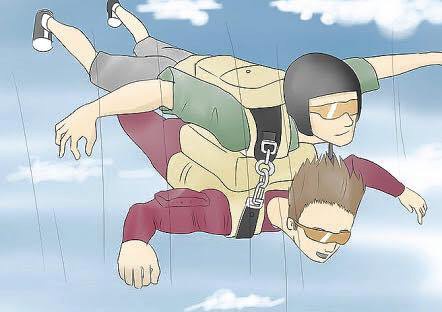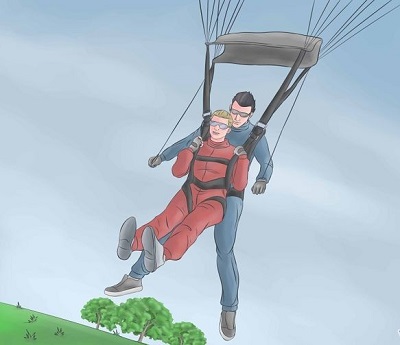2. In-flight
 Client and coach take a flight up in the sky to have a wider view of the current situation and where client wants to reach. Identify client’s feeling about the situation.
Client and coach take a flight up in the sky to have a wider view of the current situation and where client wants to reach. Identify client’s feeling about the situation.
Some useful questions at that stage:
Coach: How important is this to you?
Client: It is very important to me
Coach: How do you feel about the current situation knowing that this is important to you?
Client: I feel I need to work on it and do something about it.
Coach: What would you like to change about your current situation?
Client: I would like to take steps and move forward
Coach: what won’t happen if you don’t change your current situation?
Client: I won’t be able to write the book thus feeling really bad about myself.
Coach: How do you feel right now about not writing the book?
Client: I feel bad and it will affect my self confidence.
Coach: Right now do you feel confident about writing the book?
Client: Not really
3. Dive
 Client and coach dive and dig deep in the current situation and self to uncover limiting beliefs and to get to the root cause. That’s the most thrilling and exciting part of the skydiving as well as the coaching process.
Client and coach dive and dig deep in the current situation and self to uncover limiting beliefs and to get to the root cause. That’s the most thrilling and exciting part of the skydiving as well as the coaching process.
Some useful question at that stage:
Coach: What makes you feel not confident about yourself?
Client: I am afraid people won’t like it. I have this anxiety.
Coach: Do YOU think you are good enough?
Client: Yes, I feel I have all the qualities and talents to write the book.
Coach: What are 5 of these qualities?
Client: I have wrote before several articles and got amazing feedback- I am creative- I have new ideas- I have high credibility to many people- I am smart and I know I can do it.
Coach: what worked for you best in the past to motivate you while working on assignments?
Client: I always believed in myself.
4. Parachute Control
minds are like parachutes they only function when open
 This is when the client gets a mind shift and a change in perspective by gaining awareness. Higher level of focus and self management. The ability to respond to wind speed and weather conditions. At that stage client monitors the parachute and enjoys the flight, has a better view of the situation and available alternatives, has more clarity and knows the way to his goals and objectives.
This is when the client gets a mind shift and a change in perspective by gaining awareness. Higher level of focus and self management. The ability to respond to wind speed and weather conditions. At that stage client monitors the parachute and enjoys the flight, has a better view of the situation and available alternatives, has more clarity and knows the way to his goals and objectives.
Useful questions at that stage:
Coach: How is this anxiety serving you now?
Client: it will push me to write better other than this it is stopping me.
Coach: what is the impact then of feeling that people think your book won’t be good enough?
Client: It’s taking up lots of my energy and putting me down
Coach: What could you do to stop this feeling?
Client: I will write everyday in my journal what makes me a great writer.
Coach: When will you start this?
Client: today
Coach: What else could you do?
Client: I can get feedback about myself from my close friends to boost my motivation.
Coach: What can come in your way?
Client: I can feel the lack of motivation sometimes.
Coach: What can you do about that?
Client: will go back to my journal and my support system.
Coach: How can I be of any support to you?
Client: If I ever feel down I will call you.
5. Landing
 Here both coach and client reach safe on the ground. That’s time for Celebration and acknowledgement. Evaluation and assessment of goals to ensure the success of .the journey. Here the coach acknowledges the client for his awareness about himself and the steps he put to achieve his goals.
Here both coach and client reach safe on the ground. That’s time for Celebration and acknowledgement. Evaluation and assessment of goals to ensure the success of .the journey. Here the coach acknowledges the client for his awareness about himself and the steps he put to achieve his goals.
Questions at that stage:
Coach: How do you feel now?
Client: I feel great and energized enough to work on my book.
Coach: Do you feel it in your heart and chest?
Client: Yes.
Coach: what do you know now that you didn’t know before about yourself?
Client: That this anxiety was stopping me and that I am good enough to write the book
Coach: What is your next step?
Client: Will continue writing my book
Coach: when will you start?
Client: Tonight.
Coach: what will you do when you finish your book?
Client: will take a vacation to celebrate.
Coach: That’s the best part
Coaching is an amazing experience. Make it a fun, exciting and enjoyable one… Make it count!